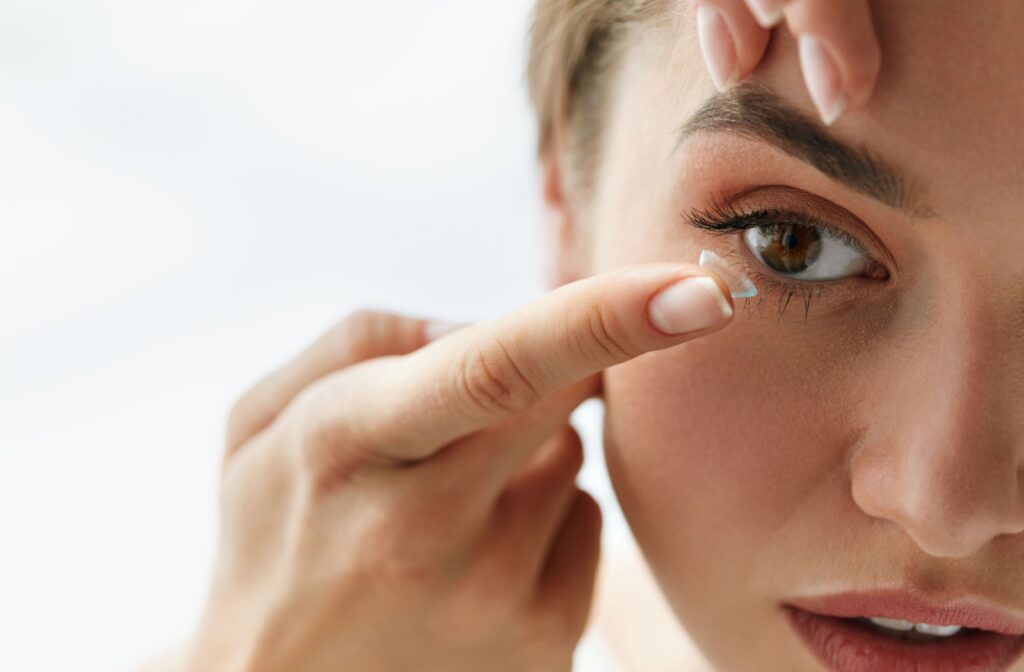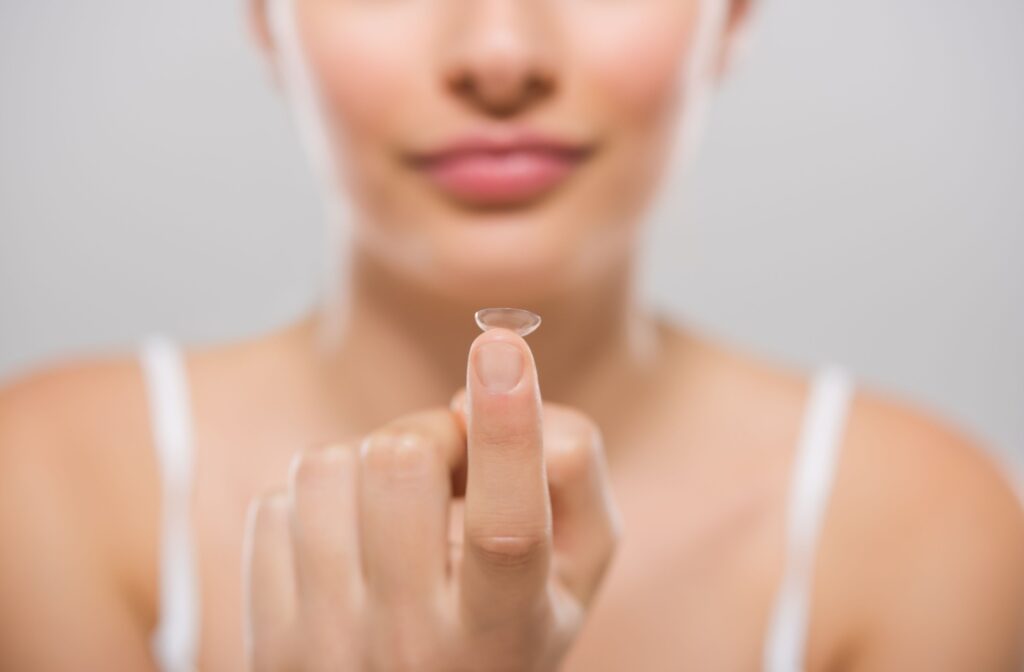Contact lenses play a pivotal role in the lives of many of our patients, serving not only to help enhance lifestyles but also help correct vision. Despite their widespread use, one critical aspect often goes unnoticed by many users: the expiration date. Contacts do expire, and there are many health and safety issues that can be caused by wearing expired contacts.
It’s vital to recognize that contact lenses, much like various medical devices, come with an expiration date. Grasping the importance of this date is key to safeguarding your eye health, helping your contact lenses perform as intended, and avoiding any potential eye emergencies.
The Importance of Expiration Dates on Contact Lenses
Contact lenses are produced in sterile conditions and packaged to preserve both their sterility and moisture. The expiration date indicated on their packaging is the manufacturer’s guarantee of the lenses’ sterility and safety for use up to that point. Beyond this date, the assurance of sterility diminishes, and your risk of eye infections and other serious health concerns can increase.
Understanding the critical role of expiration dates can help users avoid the risks associated with using compromised lenses. Expiration dates help ensure that individuals are using contacts that are not only effective in correcting vision but are also safe.
This precaution is vital for maintaining eye health and preventing complications that could arise from using lenses that have lost their optimal condition due to material degradation. Therefore, adhering to the expiration dates on contact lenses is essential.
Why Do Contacts Expire?
Over time, the materials that constitute contact lenses can deteriorate. This deterioration can alter the lenses’ shape, structure, and oxygen permeability, potentially leading to discomfort, diminished effectiveness, and harm to the eye. The expiration date serves as a guideline for using the lenses while they remain in prime condition.
The sealed packaging that contains some types of contact lenses may also deteriorate over time, which can make it possible for bacteria to enter the packaging and build up on your contacts before you wear them. That kind of bacteria buildup can lead to an increased risk of infections.
Health & Safety Concerns with Using Expired Contacts
Utilizing contact lenses beyond their expiration date can lead to several health and safety concerns that should not be underestimated. It’s better to dispose of expired contacts rather than risk wearing them.
Eye Infections
Once the expiration date has passed, the manufacturer’s guarantee of the lenses’ sterility is no longer valid. When expired contact lenses turn into potential hotspots for microbial growth, those contaminants can cause a range of eye infections, from those that cause slight irritation and discomfort to others that could potentially lead to a loss of vision if not treated promptly and effectively.
Discomfort & Eye Damage
Degraded contact lenses can directly affect your comfort and eye health. As the lenses break down, they may become less smooth or even warp slightly, leading to physical irritation against the delicate tissues of your eye.
Irritation can manifest as general discomfort, a sensation of something being in the eye, or in more severe cases, corneal abrasions. These scratches on the surface of the cornea can be painful and make the eye more susceptible to infections.
Changes in the material’s permeability might also impede the flow of oxygen to the cornea, leading to an increased risk of other conditions, including dry eye disease.

Tips for Maintaining Safe Contact Lens Use
To sidestep the hazards linked with contact lenses, it’s crucial to do the following:
- Always inspect the expiration date: Always verify the expiration date before buying or using contact lenses. Refrain from using contacts close to their expiration date to ensure they’re used within a safe time frame.
- Adhere to storage recommendations: Store your lenses according to the manufacturer’s instructions. Incorrect storage can cause the lenses to degrade prematurely or become contaminated.
- Follow the recommended replacement schedule: Adhere to the lens replacement schedule advised by your eye doctor, whether it involves daily, weekly, or monthly lenses. Regular replacement helps mitigate the risks associated with prolonged lens wear.
- Maintain proper hygiene: Ensure your hands are thoroughly cleaned before handling contact lenses to minimize the risk of introducing bacteria or other contaminants to your eyes.
- Practice proper contact lens care: Clean, rinse, and disinfect your lenses each time you remove them, using the recommended solution from your eye care provider. Never use saliva or tap water to clean your lenses, as these can harbor bacteria and other microorganisms.
- Never share contact lenses: Sharing lenses can spread microorganisms, which can lead to infection.
- Limit exposure to water: Avoid wearing contact lenses in the shower, swimming pool, or hot tub. Water can introduce bacteria to the lenses and increase your risk of eye infections.
- Monitor for discomfort or vision changes: If you experience discomfort, redness, blurred vision, or sensitivity to light, please remove your lenses immediately. If these symptoms persist, contact your eye care professional, as these symptoms may indicate an infection or another problem we can help address.
The Road to Eye Safety
While it might seem harmless to use contact lenses beyond their expiration date, especially if they appear undamaged, the associated risks are significant.
The expiration date is established to guarantee the lenses’ safety and efficacy. By respecting this date and practicing diligent lens care and hygiene, you can preserve your eye health and continue benefiting from contact lens use without unnecessary risks.
At Bluebird Vision + Wellness, we offer a wide range of contact lenses for you to choose from. Our online platform also allows you to set up auto reorder to help you replace your contacts with a new pair once they have reached expiry. Visit us in Blackfoot or browse our online store to order a fresh pair of contacts today!



